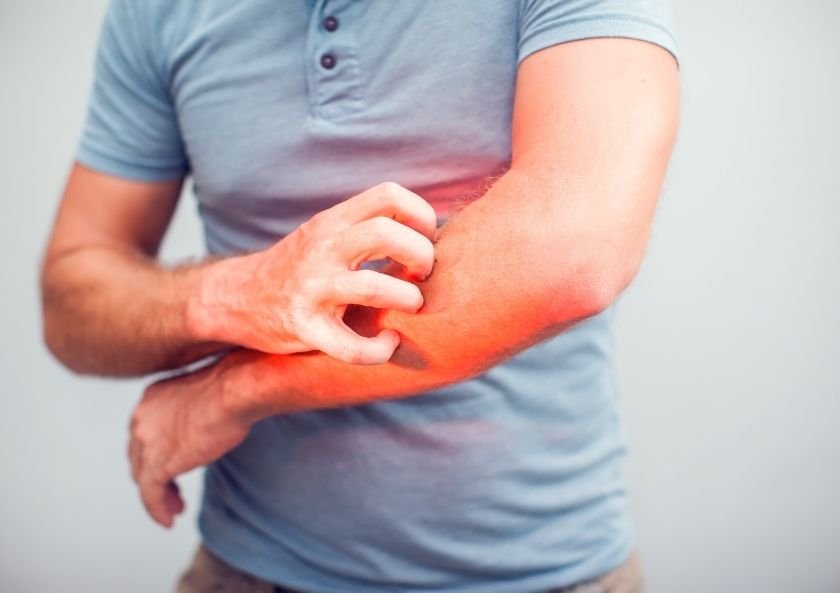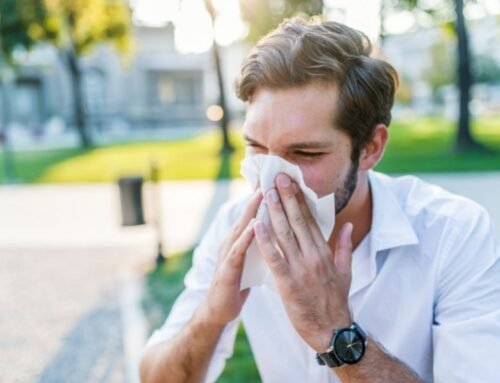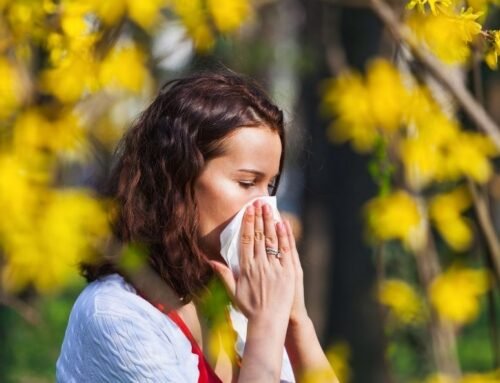It is an unpleasant condition that often causes a burning and stinging sensation to be bitten or crawling all over the body or elsewhere. Itching is an unpleasant condition that often awakens the desire for relief by rubbing or scratching the skin. When itching continues for a long time, it can lead to sleep, anxiety, and depression. Complaints may increase even more as the protective barrier of the skin disappears due to continuous scratching on the skin. Although itching is generally seen as a skin problem, it should be considered as a symptom of a systemic disease or a disease process that causes abnormal nerve stimulation.
What Causes Allergic Itching?
Itching can be an important warning system for many diseases. Itching may not only be associated with skin diseases. Therefore, it is necessary to keep under the complaint of itching, especially itching that lasts longer than 6 weeks, that is, it is appropriate to investigate other diseases under chronic itching.
The presence of localized or generalized pruritus, as well as fluid-filled lesions such as redness, swelling or bullae papules, may be useful in finding the causes of itching.
Localized itches are itching that is limited to a certain part of the body. it may occur with rash (eg dermatitis) or due to hypersensitive nerves in the skin (neuropathic pruritus).
There are neuropathic causes under localized itching without redness. Itching, such as pain, can occur due to any problem in the path between the central nervous system (from the brain and spinal cord), the peripheral nervous system and the skin.
Generalized itching in the whole body may be due to other underlying diseases other than dermatological diseases, among which kidney-induced (renal) itching, bile duct-induced (cholestatic) itching, hematological-induced itching, endocrine-related or malignancy-related itching are among the most common causes. Apart from these, itching can also be seen due to psychosomatitis disorders for which no exact cause can be found.
Primary skin diseases such as xerosis, atopic dermatitis, urticaria, eczema, systemic contact dermatitis, insect bite (scabies), mastocytosis, dermatitis herpetiformis or pemphigoid are among the skin or allergic diseases that cause widespread itching throughout the body.
How Is Allergic Itching Diagnosed?
A careful medical history and examination are very important to the evaluation of an itchy patient.
The examination findings of systemic diseases that may underlie itching should be carefully reviewed. It would be appropriate to request examinations accompanied by other findings accompanying the itching. Especially, the diagnosis of other systemic diseases that cause itching can sometimes be the first complaints of itching.
If itching is thought to be caused by the skin, skin tests and other tests may be ordered, but if it is caused by diseases other than skin
It may be necessary to request tests considering other findings such as complete blood count, creatinine and kidney function tests, liver function tests, thyroid function tests, HIV serology.
What Treatments Can Be Used For Allergic Itching?
If the cause of itching can be identified, it is important to eliminate the cause, but if the cause cannot be eliminated, treatments should be made to prevent further itching.
In most cases, tests are required to determine the cause. While these tests continue, treatment can be applied to reduce itching.
In order to reduce itching, it is necessary to benefit from tropical, systemic treatments and phototherapy treatments together.
Tropical Treatments
Skin itching can be reduced with tropical treatments. In addition to treatment for any underlying skin or internal diseases, tropical treatments can be used. Creams used to cool the skin or a warm shower may be helpful.
Regular use of emollients is beneficial, especially when the skin is dry. In addition, short-term low-mild tropical corticosteroids can be used.
Systemic therapy
The use of systemic treatments may be necessary if itching is severe and interferes with sleep. Some medications relieve itching while others are given only for their soothing calming effects.
Antihistamines are useful in urticaria or allergic skin diseases. In addition, antihistamines with side effects such as sleep and sedation can be used for sedative effects.
Doxepin and amitriptyline are tricyclic antidepressants and have antipruritic effects and act on the central and peripheral nervous systems.
Tetracyclic antidepressants such as mirtazepine and selective serotonin reuptake inhibitors (paroxetine, sertraline, fluoxetine) may help some patients with severe itching in cases caused by cholestasis, T-cell lymphoma, malignancy, or a neuropathic condition.
Phototherapy
Phototherapy treatment applied with ultraviolet B (UVB) wavelengths alone or in combination with UVA has been shown to be particularly beneficial in chronic kidney disease, psoriasis, atopic eczema and itching due to cutaneous T cell lymphoma.
As a result
Follow-up and treatment of chronic severe itching is difficult. Combination therapies with many treatments often need to be used for a long time. Identifying the underlying conditions that cause itching can help with treatment. Therefore, the causes of itching should be carefully investigated and the treatment should be arranged when the diagnosis is made as a result of the necessary tests.






